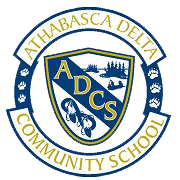AP 310: Guardianship, Custody And Access
Organization & Culture
Background
Custody disputes involving parents or other family members can present significant challenges for school staff, particularly in situations where legal custody has not been formally established by the Court. In such cases, de facto custody typically resides with the parent or guardian with whom the child primarily resides.
While it is generally advisable for school administration and staff to avoid direct involvement in custody disputes, the school’s primary responsibility is to safeguard the well-being and best interests of the child. Principals shall carefully consider this responsibility when addressing parental requests or determining custodial rights in situations where clarity is lacking.
In instances where Court documentation does not provide sufficient clarity to guide the appropriate course of action, school administration shall be expected to apply their professional expertise to adopt a “safety-first” approach that prioritizes the child or children’s welfare.
It is essential, therefore, for the Principal and school staff to establish and clarify custody, guardianship, and access rights at the earliest opportunity, in order to ensure consistent and careful decision making.
Definitions
a) Access: shall refer to the time that the parent without custody (or primary care) has with the child or children. Access only applies to divorcing or divorced parents.
b) Custody: shall be used to indicate primary responsibility for, and primary care and control of a child.
c) Guardian: shall refer to an individual who has entitlements (rights), responsibilities and powers with respect to a child, as defined by The Family Law Act s. 20, as the Act establishes guardianship. A guardian is entitled to be involved in making significant decisions about the child and have enough time with the child to exercise the powers and responsibilities.
d) Parent: shall mean parentage of the child as defined by The Family Law Act s. 1 and the Education Act s. 1(2).
e) Parenting Time: shall refer to time that is typically specified in an Order of the Court and applies to parents who are seeking clarity on parental responsibilities and time with the child. Under the Divorce Act (Canada) parenting time is part of the overall framework for parenting arrangements, following a divorce. Under the Family Law Act (Alberta), parenting time means time during which a guardian has the power to make day to day decisions affecting the child, including having the day to day care and control of the child and supervising the child’s daily activities, whether the child is in the guardian’s presence or out of the guardian’s presence with the guardian’s express or implied consent. (Family Law Act s. 32(5)).
Procedures
1. The Principal shall be responsible for collecting all relevant information that can help determine the specifics of custody, guardianship and/or access as legislated in the Family Law Act:
1.1. The Principal or designate(s) shall carefully review each agreement for authenticity so as to ensure that the school has the most recent order issued in proceedings; and
1.2. The Superintendent or designate shall be consulted should the Principal or Designate perceive any documentation to be forged, incomplete or lacking in clarity.
2. Where a person claims to be a parent or guardian, or claims the existence of any limitation on the authority of the parent or guardian, the onus is on that person to provide valid and legal proof of the claim; for clarity
2.1. Principals shall communicate to the legal guardian(s), through the student registration process, that if a person claims to be a parent or guardian, or claims the existence of any limitation on the authority of that parent or guardian, the onus is on that person to provide proof of the claim.
3. Guardians shall provide copies of all orders or agreements addressing guardianship rights, responsibilities or entitlement, or otherwise affecting the custody or access to the child for whom registration is sought; specifically,
3.1. Within a standard of reasonability, the Principal shall review and consider instances where an order refers to custodial and/or access permissions for the child and may, accordingly, adjust access as deemed necessary by the order;
3.2. Court orders addressing guardianship rights of legal guardians can be issued by either the Provincial Court of Alberta, or the Court of Queen’s Bench; and
3.3. Agreements or orders under the former Child Welfare Act, or under the new Child, Youth and Family Enhancement Act or the Family Law Act, which appoint legal guardians, may be provided as proof of guardianship.
4. In rare circumstances, a child may also be impacted by a restraining order issued under the Child, Youth and Family Enhancement Act, which limits rights of access by the guardian to the child.
5. While the parent is usually the legal guardian of the child, that is not always the case, given that guardianship rights can be shared by parents or can be extinguished for either parent; notably
5.1. Where a child has more than one (1) guardian, the guardians may exercise the powers, responsibilities and entitlements of a guardian, unless the Court orders otherwise;
5.1.1. Either guardian shall provide information to any other guardian relating to the exercise of powers, responsibilities and entitlements of guardianship at the request of that other guardian; and
5.1.2. Guardians shall use their best efforts to cooperate with one and other; and may enter into an agreement with respect to the allocation of powers, responsibilities and entitlements of guardianship among themselves, and as provided for under the Family Law Act.
5.2. Except where otherwise limited by a parenting order, each guardian shall be entitled to be informed of and consulted about and to make all significant decisions affecting the child in the exercise of such powers, and to have sufficient contact with the child to carry out those powers and responsibilities.
5.3. Guardianship rights can be extinguished, limited or otherwise affected by a separation agreement under the Divorce Act, through a parenting agreement made under the Family Law Act, by custody or access orders issued under the Divorce Act, or through court orders including Parenting and Contact Orders made under the Family Law Act.
6. The Principal shall be responsible for ensuring that all such Court orders or agreements are uploaded to the secure Alberta Provincial Approach to Student Information [PASI] site, and that such information is only accessed on a need to know basis, and that guardians/parents are aware of the need to update such information on an annual basis.
7. If the Principal is faced with requests for access to a student by a guardian whose rights of access to the student are limited by the terms and conditions of a custody or access order, or a parenting or similar order, the Principal shall:
7.1. Remind the guardian(s) of their responsibility to provide the school with a copy of the most recent order impacting the custody, access or guardianship rights; notably,
7.1.1. In the event of a dispute the claimed entitlement/restriction could be verified with any other legal guardian noted on the student record;
7.2. Carefully assess limitations set out within the custody and access agreement or guardianship order to determine if they limit the guardian’s right to access the student during school hours or on any school premises or any school sponsored activities;
7.2.1. Any such limitations shall be enforced;
7.3. Depending upon the limitation specified in the order, deny the guardian access to the student during school hours or on any school premises or at any school-sponsored activities, in accordance with the terms and conditions of the relevant order and/or agreement; and
7.4. Take such other further steps as are deemed necessary, in consultation with the Superintendent or designate.
8. Where the legal guardianship rights and/or entitlement respecting a child are in dispute, and one of the guardians is making a demand for access, the Principal shall:
8.1. Inform the claimant of the obligation to provide documentation in support of the authority of the guardian to access the child;
8.2. Conduct operations that adhere to the most recent court orders and/or agreements issued and received with respect to the guardianship of the child; and
8.3. Ensure that any other individual claiming to have legal guardianship rights, has been given the opportunity to verify that the Division has the most recent and relevant documentation respecting guardianship and/or access to the student.
9. In the event of a dispute between the guardian and the Principal, which results in a disturbance or interrupts the proceedings of the school over the rights of access to the student, the Principal may deny the guardian the right of access to the student, and shall, in consultation with the Superintendent or designate, take such steps as are reasonably necessary to avoid the recurrence of the issue, including the issuance of an appropriate notice under section 256 of the Education Act.























